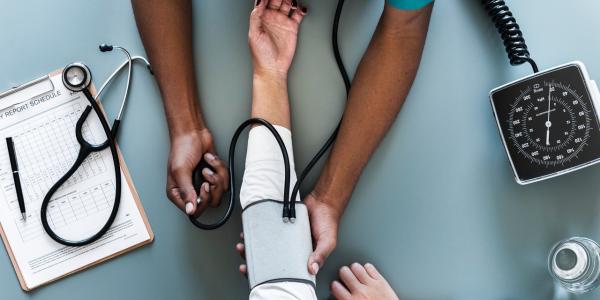Risks to Psychological Health & Appearance

Drinking over the recommended limits can increase the risk to your psychological well-being.
We drink when we're happy and having fun. We drink when we are sad and want to forget. We drink when we are excited, and when we are worried. We drink at weddings; we drink at funerals. We drink to feel more sociable; we drink too because we're lonely.
There is no doubt that drinking alcohol is often associated with a range of emotional experiences for people. In fact, many report that low-risk drinking can improve their mood. However, recent research has shown that many adults drink alcohol in order to help them cope with emotions or situations that they would otherwise find difficult to manage (Caselli et al., 2015). Simply put, people drink to help them feel better.
The trouble is that alcohol is not a stimulant; it doesn't actually make you feel better. In fact, it is a depressant, meaning that it is a drug that depresses your brain functioning. That means that drinking too much can actually make you feel worse... much worse for many people.
Drinking and Depression
People have used drinking as a way of coping with worry and upset throughout the entire course of human history... or at least since the invention of alcohol! They "self-medicate" as a way of alleviating the negative feelings that crop up in life, and at times, it actually works. Because alcohol does in fact alter the chemistry of the brain, many people do experience a lessening of negative feelings after having a few drinks. For example, if someone feels anxious about being in a group of people at a party, a drink or two will affect that part of the brain that is associated with inhibition, and will (initially) help them to feel more relaxed. Case closed, right?
Not so fast. There are two problems with this. First, drinking to feel less anxious could lead to depletion of the neurotransmitters our brains use to reduce anxiety naturally (Banerjee, 2014). The more we drink, then, the more alcohol we need to feel less anxious.
Drinking also reduces levels of serotonin - a chemical in our brain that helps to regulate mood (Banerjee, 2014). That means that the more we drink, the more depressed we feel. The more depressed we feel, though, the more we think that we need to drink more to deal with it. The drinking itself creates a perpetuating cycle that makes it hard to quit because the absence of alcohol means that we end up feeling more depressed than we did when we started drinking.
Suicide is also linked to heavier alcohol use. Several studies have found high rates of alcohol blood concentration among those attempting suicide (46% to 77%) and those completing suicide (29% to 38%) (Hufford, 2001; Conner et al., 2014). Additionally, intoxicated people are more likely to attempt suicide using more lethal methods, and alcohol seems to be a significant factor in suicides and suicide attempts among people with no history of psychological difficulty or mental health concerns (Pompili et al., 2010; Conner, 2011).
Memory and Your Brain
Alcohol can also damage the memory and overall functioning of the brain. After a few drinks, your brain begins to slow down by the effects of alcohol, and your memory gets worse. Drinking a lot more alcohol can lead to short-term memory failure, or "blackouts." Drinking heavily over a long period of time can also have long-term effects on memory, making it harder to recall old memories, or even laying down new ones (White & Hingson 2013).
Risks to Physical Appearance
While we here at University Physician's Office would emphasize that one's character is always more important than physical appearance, it is true that most of us have at least some awareness of our outward appearance. Here are a couple of effects that regular drinking over the recommended limits can have on your looks:
- Eyes. Heavy drinking can impact the quality of your sleep, lowering the number of hours you sleep and interrupting your rest during the night. This is why so many heavy drinkers often have bags under their eyes, and end up with a "bloodshot" look after a long night of drinking and a poor night's sleep.
- Skin. Alcohol dehydrates the body, and that includes our largest organ, the skin. It is also thought to deplete the skin of certain vitamins and nutrients. This results in the skin looking grey, pale, and even brittle and dry. Excessive use has also been linked to rosacea, a skin condition that leaves the cheeks red and blotchy. Drinking heavily can also dilate thin blood vessels in the skin, reddening the face and nose, and creating red streaks across the face.
- Premature aging. Remember those vitamins and nutrients we mentioned a moment ago? Those same vitamins, the ones that alcohol depletes, are also used by the skin for maximum elasticity and vibrance. So, guess what? Chronic drinking can make you look older than you really are due to this.
- Puffiness. Alcohol also causes the skin to become puffy, causing bloating in the face and the abdomen.
- Weight gain. We don't want to make a big deal about this because we firmly believe that people can be healthy at any size... but it is true that alcohol is calorie intensive, with 125 calories in a single glass of wine, for example.
Now that we have a better understanding of the risks that drinking over the recommended guidelines can have on our physical, mental, and emotional health, we may want to spend some time looking at dependency. To learn more about dependency click here.
References
Banerjee N. (2014). Neurotransmitters in Alcoholism: A Review of Neurobiological and Genetic Studies. Indian Journal of Human Genetics, 20(1), 20–31.
Caselli, G., Canfora, F., Ruggiero, G., Sassaroli, S., Albery, I., & Spada M. (2015). Desire Thinking Mediates the Relationship between Emotional Intolerance and Problem Drinking. International Journal of Mental Health & Addiction, 13(2), 185-193
Conner, K., (2011). A Call for Research on Planned vs. Unplanned Suicidal Behavior. Retrieved from https://onlinelibrary.wiley.com/doi/abs/10.1521/suli.34.2.89.32780
Conner, K., Huguet, N., Caetano, R., Giesbrecht, N., McFarland, B., Nolte, K., & Kaplan, M. (2014). Acute Use of Alcohol and Methods of Suicide in a US National Sample. American Journal of Public Health, 104(1), 171–178.
Hufford MR. Alcohol and suicidal behavior. Clin Psychol Rev 2001; 21:797–811.
Pompili, M., Serafini, G., Innamorati, M., Dominici, G., Ferracuti, S., Kotzalidis, G., … Lester, D. (2010). Suicidal Behavior and Alcohol Abuse. International Journal of Environmental Research and Public Health, 7(4), 1392–1431.
White, A., & Hingson, R. (2013). Excessive Alcohol Consumption and Related Consequences Among College Students. Alcohol Research: Current Reviews, 35(2), 201–218.
Related Articles

Dependency
If you drink too much for too long, you can become dependent, or physically addicted, to alcohol.

Immediate & Long Term Health Risks
Drinking over the recommended limits can have immediate as well as long term health risks.


What are the Warning Signs?
What are the warning signs that I might have a problem with alcohol?





